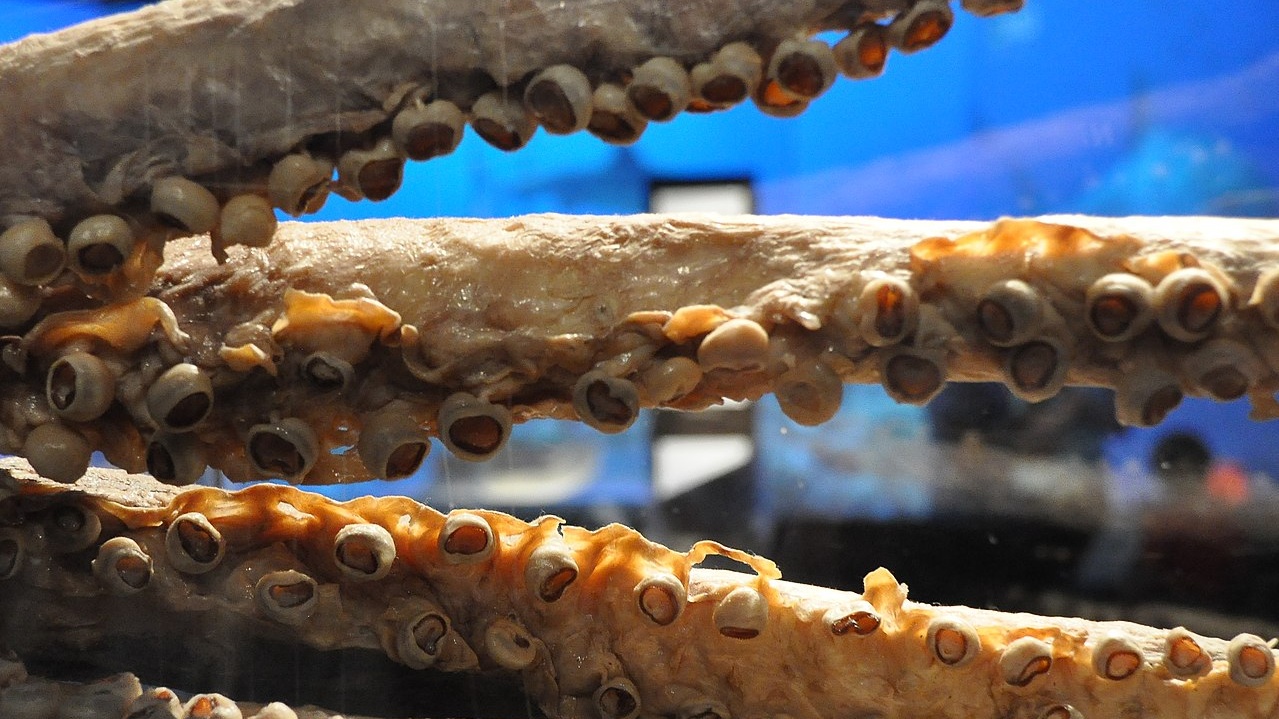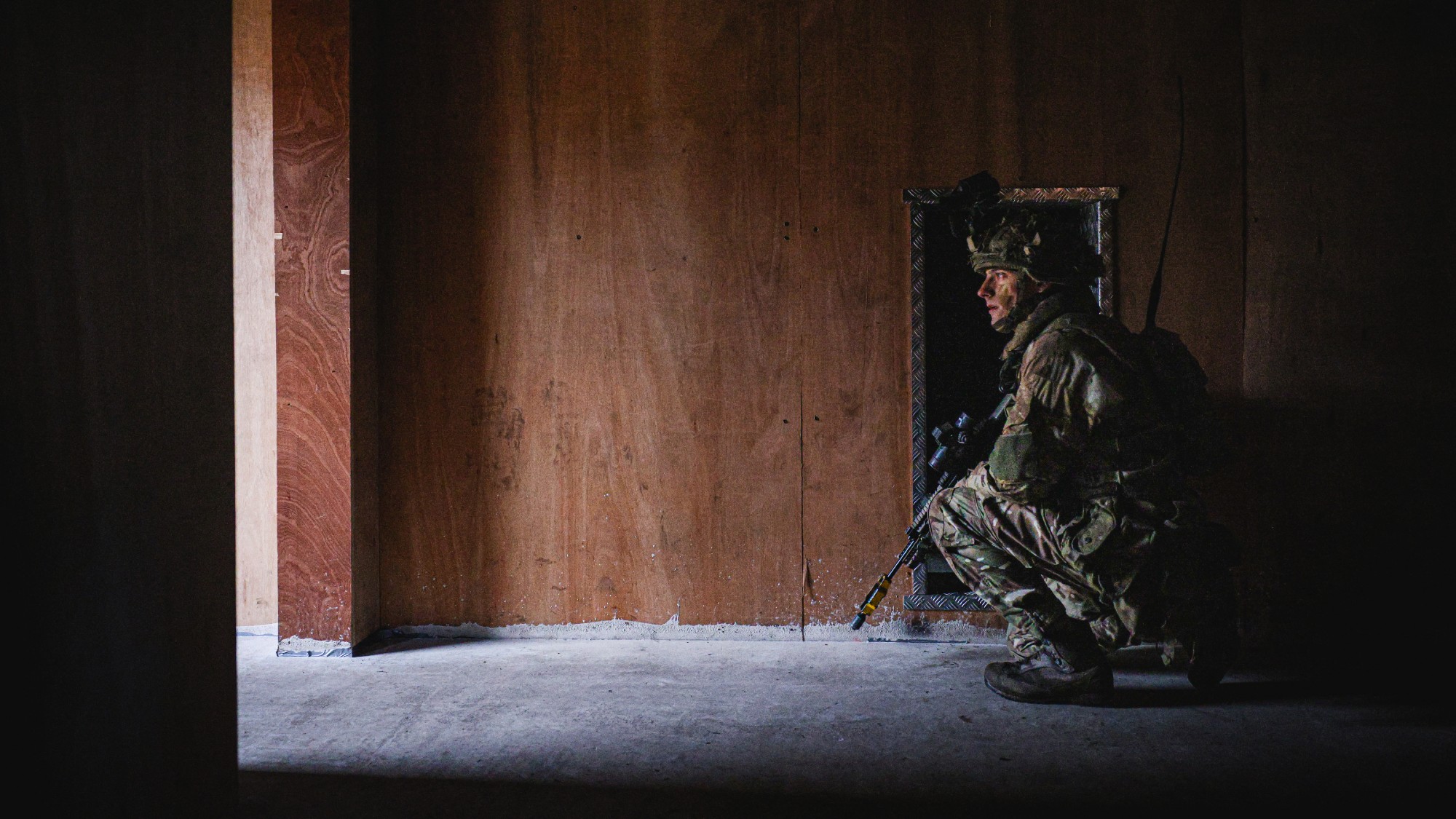‘Squid teeth’ could be used by US army for ‘self-repairing’ robots
Military scientists hope cephalopods could also be the secret to building ‘self-fixing’ uniforms

A free daily email with the biggest news stories of the day – and the best features from TheWeek.com
You are now subscribed
Your newsletter sign-up was successful
Scientists working with the US military believe that the natural healing qualities of so-called “squid teeth” could be used to develop self-fixing clothing and robots.
The suckers at the end of a squid’s tentacles allow the creature to hold fish and shrimp, but also “have an inbuilt repair system that allows them to regenerate when broken”, The Times reports.
That system is “now at the centre of a project funded by the US Army Research Institute to develop self-repairing materials”, the paper adds.
The Week
Escape your echo chamber. Get the facts behind the news, plus analysis from multiple perspectives.

Sign up for The Week's Free Newsletters
From our morning news briefing to a weekly Good News Newsletter, get the best of The Week delivered directly to your inbox.
From our morning news briefing to a weekly Good News Newsletter, get the best of The Week delivered directly to your inbox.
Researchers at Penn State University “have developed soft robotic components from a polymer that both self-heals and is biodegradable”, The i says.
As well as making self-repairing clothing, “robotic machines… ventilators, personal protective equipment and prosthetic legs could be manufactured using the polymer”, allowing them to self-heal damage stemming from constant use, the paper says.
Abdon Pena-Francesch, who worked on the research at the Max Planck Institute in Stuttgart, said: “We were able to reduce a typical 24-hour healing period to one second, so our protein-based soft robots can now repair themselves immediately.
“In nature, self-healing takes a long time. In this sense, our technology outsmarts nature.”
A free daily email with the biggest news stories of the day – and the best features from TheWeek.com
The findings were published in Nature Materials and could see “prototyping [of self-repairing materials] in five to eight years” and military application in “10 to 15 years”, Stephanie McElhinny, a biochemistry programme manager at the US Army Research Office, told the Army Times.
“With a self-healing bio-based synthetic material, any sites of damage that emerge can be repaired, extending the lifetime of the system or device,” McElhinny said.
Joe Evans is the world news editor at TheWeek.co.uk. He joined the team in 2019 and held roles including deputy news editor and acting news editor before moving into his current position in early 2021. He is a regular panellist on The Week Unwrapped podcast, discussing politics and foreign affairs.
Before joining The Week, he worked as a freelance journalist covering the UK and Ireland for German newspapers and magazines. A series of features on Brexit and the Irish border got him nominated for the Hostwriter Prize in 2019. Prior to settling down in London, he lived and worked in Cambodia, where he ran communications for a non-governmental organisation and worked as a journalist covering Southeast Asia. He has a master’s degree in journalism from City, University of London, and before that studied English Literature at the University of Manchester.
-
 What are the best investments for beginners?
What are the best investments for beginners?The Explainer Stocks and ETFs and bonds, oh my
-
 What to know before filing your own taxes for the first time
What to know before filing your own taxes for the first timethe explainer Tackle this financial milestone with confidence
-
 The biggest box office flops of the 21st century
The biggest box office flops of the 21st centuryin depth Unnecessary remakes and turgid, expensive CGI-fests highlight this list of these most notorious box-office losers
-
 Munich Security Conference: a showdown between Europe and Trump?
Munich Security Conference: a showdown between Europe and Trump?Today’s Big Question Report suggests European leaders believe they can no longer rely on the US for military support – but decoupling is easier said than done
-
 Taiwan eyes Iron Dome-like defence against China
Taiwan eyes Iron Dome-like defence against ChinaUnder the Radar President announces historic increase in defence spending as Chinese aggression towards autonomous island escalates
-
 Is conscription the answer to Europe’s security woes?
Is conscription the answer to Europe’s security woes?Today's Big Question How best to boost troop numbers to deal with Russian threat is ‘prompting fierce and soul-searching debates’
-
 How will the MoD's new cyber command unit work?
How will the MoD's new cyber command unit work?Today's Big Question Defence secretary outlines plans to combat 'intensifying' threat of cyberattacks from hostile states such as Russia
-
 The state of Britain's Armed Forces
The state of Britain's Armed ForcesThe Explainer Geopolitical unrest and the unreliability of the Trump administration have led to a frantic re-evaluation of the UK's military capabilities
-
 Is the 'coalition of the willing' going to work?
Is the 'coalition of the willing' going to work?Today's Big Question PM's proposal for UK/French-led peacekeeping force in Ukraine provokes 'hostility' in Moscow and 'derision' in Washington
-
 Is Europe's defence too reliant on the US?
Is Europe's defence too reliant on the US?Today's Big Question As the UK and EU plan to 're-arm', how easy will it be to disentangle from US equipment and support?
-
 Would Gen Z fight for 'racist' Britain?
Would Gen Z fight for 'racist' Britain?Today's Big Question Only 11% of people aged 18-27 say they would fight for UK, survey by The Times reveals, amid low levels of pride and 'declines in confidence in institutions'